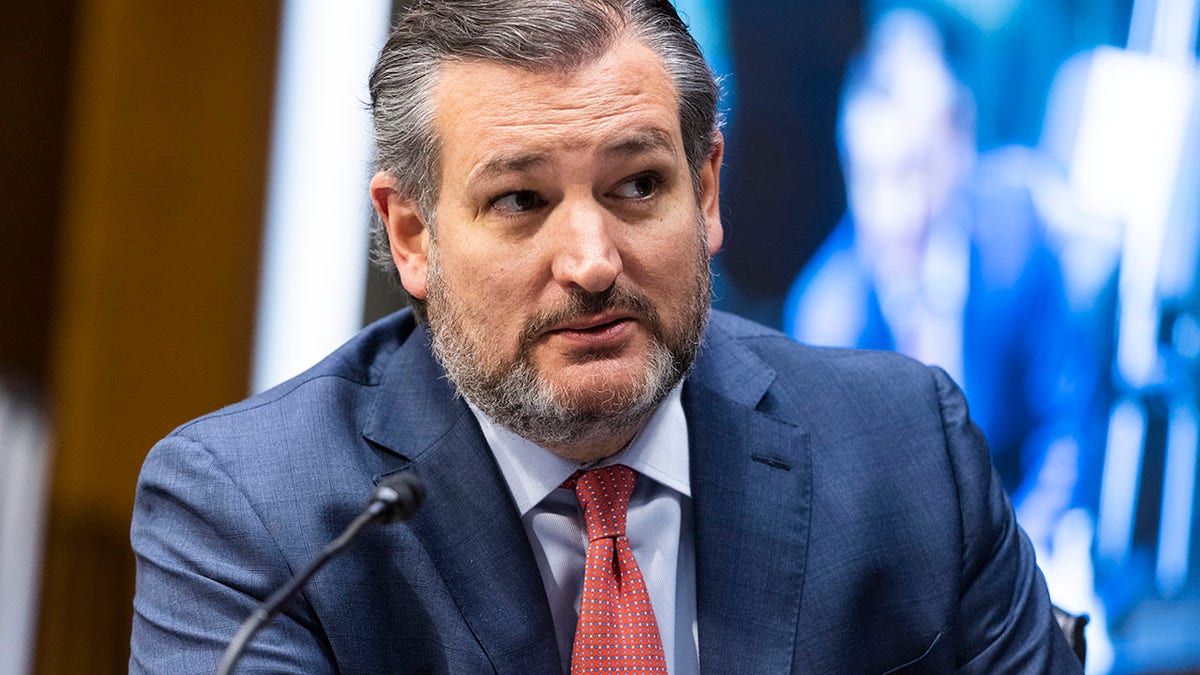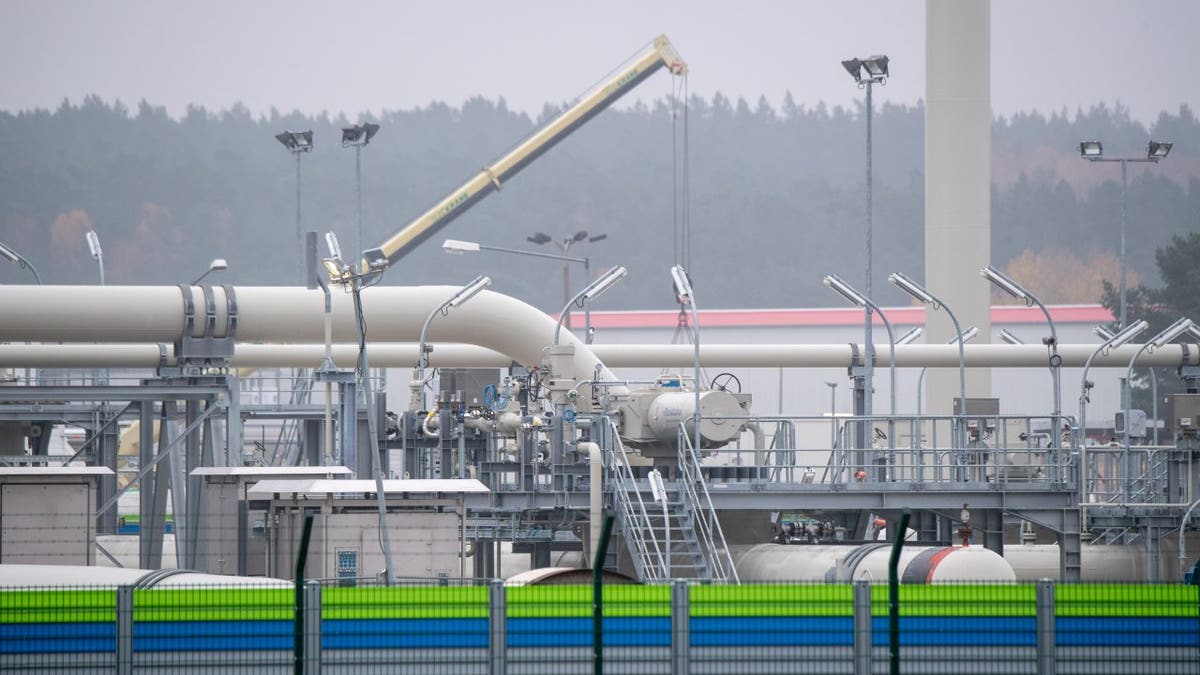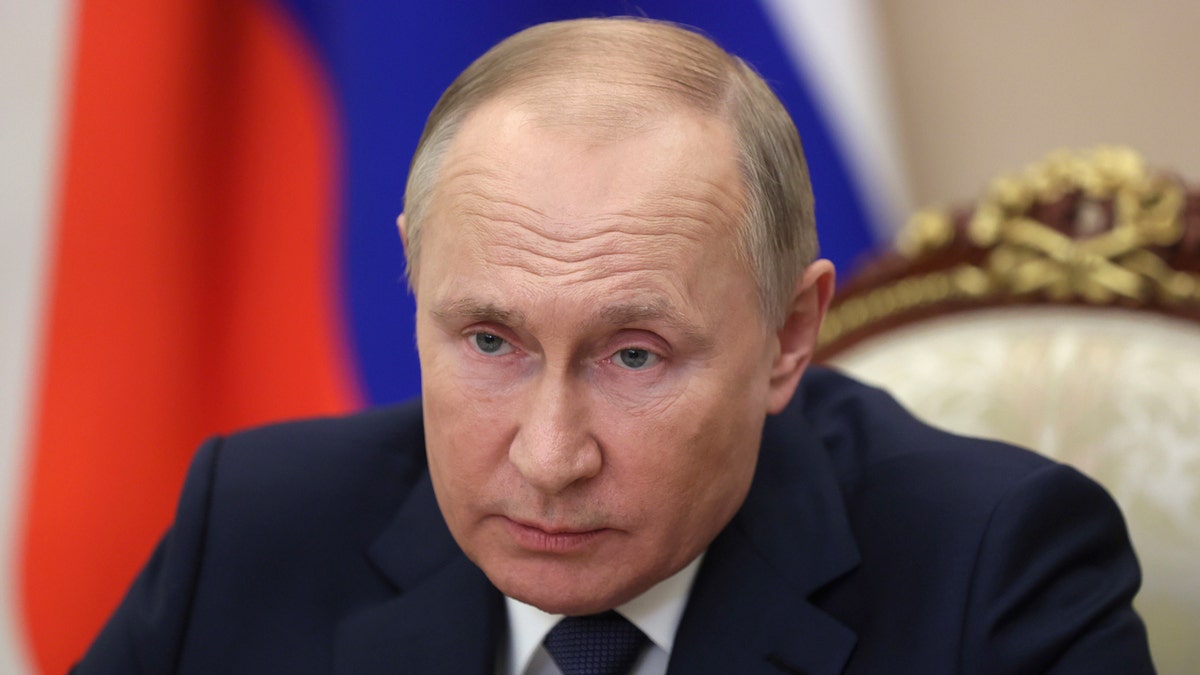Fox News Flash top headlines for December 18
Fox News Flash top headlines are here. Check out what's clicking on Foxnews.com.
The months-long blockade on Senate-confirmed ambassadorships came to close Saturday morning after Texas Republican Sen. Ted Cruz reached a deal with Senate Majority Leader Chuck Schumer.
Cruz has relied on the limited powers of the Senate minority to block President Biden’s nominations to fill top foreign positions in protest to the president’s sanction reversal on the Nord Stream 2 pipeline.
CRUZ BLOCKS STATE DEPARTMENT NOMINEES, INCREASING THE BACKLOG OF UNCONFIRMED BIDEN OFFICIALS

Sen. Ted Cruz, R-Texas, speaks during a Senate Foreign Relations Committee hearing. (AP)
But a deal was reached between Schumer and Cruz Friday night, Fox News confirmed Saturday. Cruz agreed to allow 32 of the president’s nominees to be pushed through the upper chamber in exchange for a vote on sanction enforcement in early January 2022.
Republicans have repeatedly contested the president’s July decision that allowed for the unimpeded construction of the major pipeline which will pump Russian gas to the European Union.
The Biden administration said the decision was made to preserve U.S.-German relations as the pipeline would funnel gas right into Germany. But Republicans argue the move opened up Ukraine to Russian aggression.
Fox News could not immediately reach the White House or Schumer for comment on the deal that could open the pipeline back up to U.S. sanctions.
SEN. ERNST SAYS SENATE CAN OVERRIDE BIDEN TO SANCTION RUSSIA’S NORD STREAM 2 PIPELINE
A source familiar with the negotiations told Fox News the likelihood that sanction approval makes it through the Senate is "generally high."

16 November 2021, Mecklenburg-Western Pomerania, Lubmin: View of pipe systems and shut-off devices at the gas receiving station of the Nord Stream 2 Baltic Sea pipeline. (Photo by Stefan Sauer/picture alliance via Getty Images)
But it remains unclear if Republicans would be able to garner enough support in the lower chamber to override a presidential veto if it made it to the president’s desk.
Despite previous hesitation to implement sanctions on the pipeline, recent steps taken by Germany and comments made by the Biden administration suggest the tide could be turning on Nord Stream 2 sanctions.
Germany last month slowed progress on the pipeline when a German regulator suspended the certification process of the pipeline, due to a legal paperwork issue.
Additionally, Minister of Germany’s Economic Affairs and Climate Action, Robert Habeck, warned Russia of "severe consequences" and threatened to block the pipeline’s completion if the Kremlin attacked Ukraine, reported DW Saturday.
A similar tone was taken by U.S. National Security Advisor Jake Sullivan last week when he suggested the pipeline could be used as a bargaining chip to deter Russian aggression.
"The fact is that gas is not currently flowing through the Nord Stream 2 pipeline," he told reporters. "Which means that it is not operating.
"Indeed, it is leverage for the West because if Vladimir Putin wants to see gas flow through that pipeline, he may not want to take the risk and invade Ukraine," Sullivan added.

Russian President Vladimir Putin holds a video conference to address participants in a congress of the United Russia party marking the 20th anniversary of the party founding, in Moscow, Russia.
Republicans have long argued the pipeline would bolster the Kremlin and pose a greater threat to European energy security. But the argument on sanctions appears to have shifted and is no longer a debate on if, but when.
CLICK HERE TO GET THE FOX NEWS APP
While Republicans on the Hill have advocated for preemptive sanctions, Democrats are expected to back implementing sanctions only if Russia invades Ukraine – a move Ukrainian President Volodymyr Zelenskyy has warned against.
"For us, it is important to have sanctions applied before, rather than after, the conflict would happen, because if they were applied after the conflict would happen, this would basically make them meaningless," Zelenskyy told reporters this week.





















